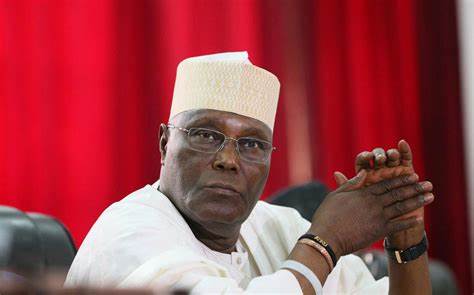LOCAL

THE PRESIDENTS AFTER OBASANJO ARE RESPONSIBLE FOR ESCALATING BOKO HARAM THREAT
Former Vice President Atiku Abubakar has credited former President Olusegun Obasanjo with promptly quelling the Boko Haram threat when the group initially surfaced during their administration.
During a meeting in Abuja on Wednesday with stakeholders from Kogi East Senatorial District, led by former Kogi State Deputy Governor Simon Achuba, Atiku attributed the swift action against the insurgents to the administration's strong political will.
In a video shared on his Facebook page, Atiku recounted that Boko Haram first emerged in Yobe State in 2002, prompting Obasanjo to seek his counsel on how to address the budding threat.
Atiku said, “You remember when the Boko Haram started in Yobe? It was actually in 2002. We were in the office. The president sent for me. ‘VP, what do we do about this?’ Then I said, ‘Mr President, let’s call the Service Chiefs and give them a deadline. If they can’t put it down, then they should put down their uniform and go away. We will get some other people.
“And he called the Service Chiefs; I was there, and gave them marching orders, and within a few weeks, they put down the insurgency in Yobe. It never came up again until we left office.”
Atiku attributed the resurgence of Boko Haram to the inability of successive administrations to take decisive action against the group.
“So, I will say there’s a lack of political will on the leaders. When they’re killing your citizens, how can you even eat? They’re killing your citizens and you don’t give a damn; that is the greatest irresponsibility by any political leader, anywhere.
“So I hold our leadership responsible for all the insecurity that is going on all over the place,” he added.
Atiku Abubakar served as Nigeria’s Vice President from 1999 to 2007 during the administration of President Olusegun Obasanjo, in the country’s Fourth Republic after the transition from military to civilian rule.
"This represents a significant development in our ongoing coverage of current events."— Editorial Board









